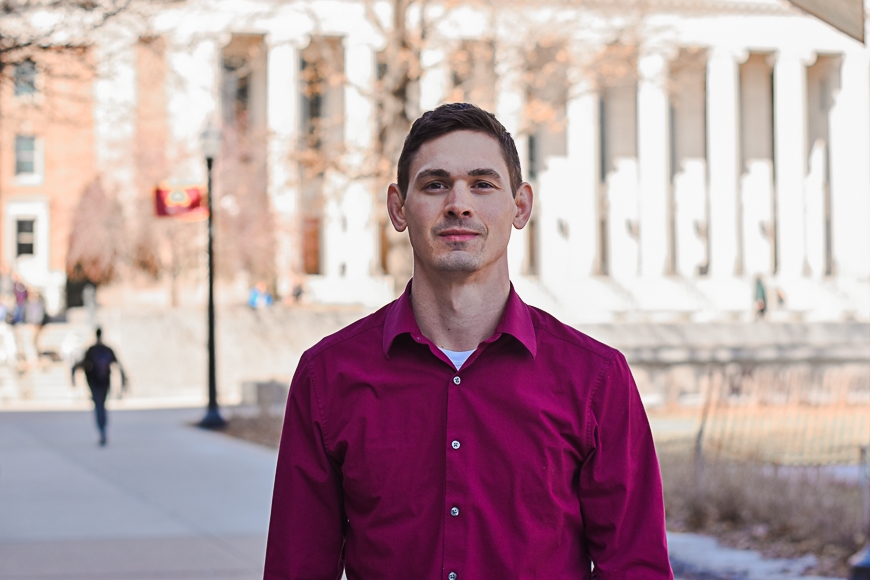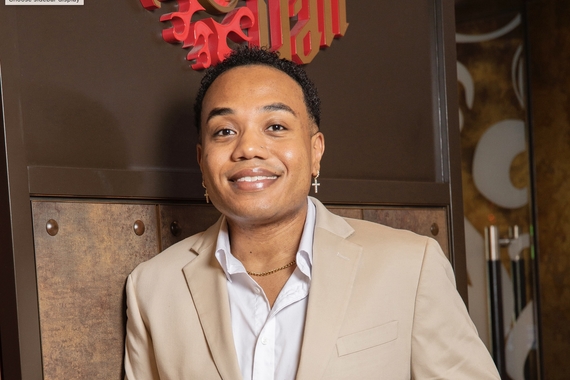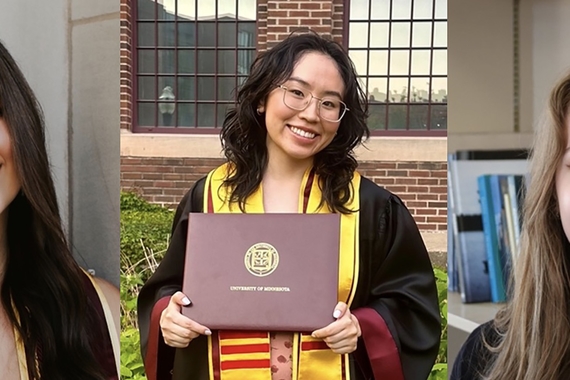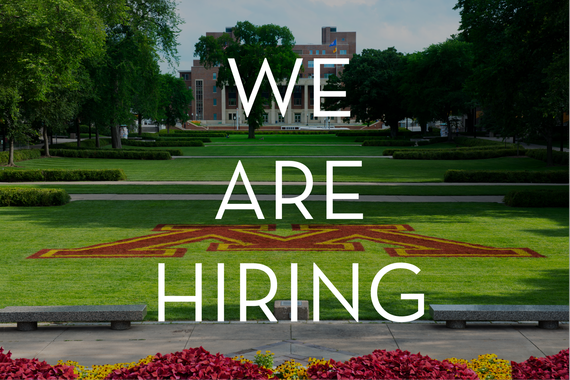Rhetoric to the Rescue
When talking about complex issues, it can be difficult to find a middle ground. Public debate can involve experts, corporations, and the general public, all with differing opinions. How can we improve discussions and meet in the middle? Department of Writing Studies Assistant Professor Daniel Card believes that rhetoric and technical writing will act as the bridge that many policies need.
Fueled by Rhetoric
Card, who received his PhD from the University of Wisconsin-Milwaukee and is now researching and teaching at the University of Minnesota, has been fascinated with how individuals deliberate for as long as he can remember. “I've always been an argumentative person. And so I think I was drawn to rhetoric and the debate side of how we make decisions about things… it was a natural pull for me,” he says. Later, he realized he could combine this interest with his additional love for engineering, science, and technology. Rhetoric and technical writing felt like a natural fit.
Throughout his career, Card has conducted various research projects on medicine, technology, and science. Whatever the subject, it is important to him to center his work around effective communication. “I'm interested in how we talk about complex things and how we take technical information and use it to promote better decision-making,” he explains.
Currently at the University of Minnesota, Card has taken interest in deliberation over mining near the Boundary Waters Canoe Area Wilderness. Ecological debates are hardly a new idea; for years, the nation has argued about whether corporations should lease land in federal forests or wildlife areas for mining purposes. Now the conversation has made its way to Minnesota, as companies have found an area that lies within the Boundary Waters watershed to be ideal for sulfide-ore copper mining.
Many are concerned that this type of mining will cause negative ecological impacts and toxin pollution in recreational areas. Others insist on the benefits of an influx of jobs, raw materials, and economic growth that the mining would foster. The debate is a complex one that relies on extensive amounts of expert opinion and analysis. This is where Card and his research step in.
Dialogue with a Purpose
The Boundary Waters discussion fuels a larger issue about whom we trust on a grand scale. Card believes there is a “crisis of expertise” when the public is bombarded with a plethora of ideas that are not easily digestible.
“I'm interested in strategies and processes by which we can have more reasoned dialogue that includes all of the information,” he says. “We have all this expertise, but it’s changing to bring all of that together into a coherent plan that hopefully satisfies most people and mitigates risks and maximizes benefits. That in itself is kind of its own expertise.”
With this in mind, Card works to establish a middle ground in the decision-making. Currently, he works with two first-year students from the Dean’s Research Scholars Program to collect as many artifacts as possible related to the mining discussion. They find social media threads, postings, public forums, environmental impact assessments on relevant government agency documents, and all sorts of news coverage. This information is then compiled, and Card looks for patterns in the way people are talking and questioning. Above all, he is searching for strategies to foster more productive, informed dialogue.
The largest goal of the project is to reveal how complex the Boundary Waters conversation is and to better inform the many constituents involved. Card hopes to take the bombardment of differing information and make it useful.
Right now “a whole host of experts from industry, academia, and government are talking about the impacts, but those discussions are often quite technical and require a lot of legal and scientific expertise. I’m interested in the extent to which those discussions shape Minnesotans’ view of the issue. It's important to try to bring those two [the experts and the public] in conversation more and think about ways to create one conversation as opposed to different ones,” Card explains.
Technical Communication in the Classroom
Card’s research greatly affects how he teaches. He believes taking any sort of technical information and pairing it with values to explore potential paths forward is a core skill to gain and key to democracy as a whole. It comes down to tailoring information for the right audience at the right time, something that has proven to be harder than many think.
In his classrooms, he is consistently amazed by his students’ analytical thinking and willingness to engage in important conversations. “I think we have such a smart community here, and [my students] are really energetic and invested. And that's just amazing.”
What’s next for Card? He hopes that this research is only beginning. As he continues, he expects to collaborate further with more partners across the University and community to implement technical writing strategies for public controversies. Above all, Card is excited for the future of his field. “I think people are starting to recognize how important it is that we go out and partner with people and learn as much as we can from them while also trying to teach when we can. I think we're learning to be better listeners always.”
This story was written by an undergraduate student in CLAgency. Meet the team.



